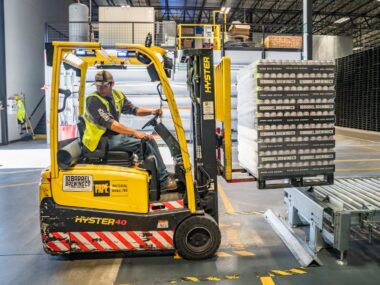High-Paying Construction Jobs in Japan with Visa-Free Sponsorship
Dreaming of high-paying construction jobs in Japan with visa-free sponsorship? You’re not alone. Japan’s booming construction industry offers incredible opportunities for skilled foreign workers, complete with visa sponsorship, competitive salaries, and a chance to experience life in one of the world’s most advanced economies. Whether you’re a carpenter, electrician, engineer, or laborer, Japan’s demand for construction talent is at an all-time high, and companies are willing to sponsor your visa to get you on board.
But how do you land these lucrative roles? What are the requirements, and which companies are hiring? In this post, we’ll break down everything you need to know from job listings and visa processes to salary expectations and insider tips for securing your dream job.
Read: Carpenter and joiner Jobs in UK with Visa Sponsorship
Why Japan’s Construction Industry is Hiring Foreign Workers
Japan is facing a severe labor shortage, especially in construction. With an aging population and major infrastructure projects like the 2025 Osaka Expo and Tokyo redevelopment initiatives, the country urgently needs skilled workers. To fill these gaps, the Japanese government has relaxed visa restrictions, making it easier for foreigners to secure work visas in construction.
Key Reasons for High Demand:
- Aging Workforce: Over 30% of Japan’s construction workers are over 55, with many retiring soon.
- 2025 Osaka Expo: Massive construction projects require thousands of workers.
- Tokyo Redevelopment: New skyscrapers, highways, and public works need skilled labor.
- 2020 Olympics Legacy: Ongoing maintenance and new facilities continue to create jobs.
Japan’s construction industry is currently experiencing a significant surge in demand for labor, driven by several converging factors that highlight both immediate and long-term needs. These factors include an aging workforce, the upcoming 2025 Osaka Expo, ongoing Tokyo redevelopment projects, and the lasting legacy of the 2020 Tokyo Olympics. Each of these elements contributes uniquely to the increasing pressure on the industry to secure skilled workers, leading to one of the highest labor shortages seen in decades.
Aging Workforce
One of the most critical challenges facing the Japanese construction industry is the demographic shift within its labor force. Over 30% of construction workers in Japan are aged 55 and above, with many expected to retire within the next few years. This aging workforce is not being adequately replaced by younger workers, due in part to the physically demanding nature of the job and the industry’s outdated image. As a result, there is a growing gap between the number of experienced workers leaving the field and the influx of new entrants. This demographic imbalance has created an urgent need to attract new talent and implement automation and technology to compensate for the declining manpower.
2025 Osaka Expo
Another major driver of construction demand is the upcoming 2025 World Expo, scheduled to take place in Osaka. The event has spurred massive infrastructure development in and around the city. The construction projects tied to the Expo include building exhibition halls, transport links such as roads and railways, hotels, and other supporting facilities. These developments are not only complex and large-scale but are also time-sensitive, creating a significant short-term spike in labor demand. Thousands of skilled and unskilled workers are needed to ensure the timely completion of these projects, further stretching the already limited labor pool.
Read: Poultry Jobs In UK With Visa Sponsorship
Tokyo Redevelopment Projects
Tokyo, as Japan’s capital and economic hub, is undergoing substantial redevelopment. This includes the construction of new high-rise buildings, urban transportation systems, public infrastructure, and commercial spaces. The government and private sector are investing heavily in modernizing the city to enhance its global competitiveness and improve urban living standards. Projects such as new highways, rail links, and sustainable buildings require a diverse set of construction professionals—from civil engineers to skilled tradespeople. These ongoing redevelopment efforts demand continuous labor input, adding another layer to the industry’s workforce shortage.
Legacy of the 2020 Tokyo Olympics
Even though the Tokyo Olympics concluded in 2021, their impact on the construction industry continues. Many of the Olympic venues and supporting infrastructure require regular maintenance, upgrades, and in some cases, repurposing for public use. Additionally, new facilities and transport routes built for the Games have spurred further development in nearby areas, fueling ongoing demand for construction services. The Olympics left behind a legacy of improved infrastructure, but also a continued need for manpower to maintain and expand upon it.
This labor crisis means higher wages, visa sponsorship, and better benefits for foreign workers.
Types of Construction Jobs Available for Foreigners
Japan offers a wide range of construction roles for expats, including:
1. Skilled Trades (Visa Category: Specified Skilled Worker – SSW)
- Carpenters ¥250,000 – ¥350,000)
- Electricians (¥280,000 – ¥400,000)
- Welders (¥260,000 – ¥380,000)
- Plumbers (¥270,000 – ¥370,000)
2. Engineering & Supervisory Roles (Visa Category: Engineer/Specialist in Humanities/International Services)
- Civil Engineers (¥400,000 – ¥600,000)
- Construction Managers (¥450,000 – ¥700,000)
- Architects (¥500,000 – ¥800,000)
3. General Labor (Visa Category: Specified Skilled Worker – SSW)
- Scaffolders (¥220,000 – ¥300,000)
- Concrete Workers (¥230,000 – ¥320,000)
- Heavy Machine Operators (¥250,000 – ¥350,000)
Salaries vary based on experience, location, and company size.
Read: Farm Technician Jobs in UK with Visa Sponsorship
How to Get a Visa Sponsorship for Construction Jobs in Japan
Unlike other countries, Japan offers visa-free sponsorship for qualified construction workers under the Specified Skilled Worker (SSW) visa. Here’s how it works:
Step 1: Check Eligibility
- Age: 18+
- Skills: Must pass a skills test (or have 3+ years of experience).
- Language: Basic Japanese (N4 level) is required for SSW visa.
Step 2: Find a Sponsor
- Apply through Japanese recruitment agencies (e.g., Pasona, JAC Recruitment).
- Directly contact construction firms like Taisei Corporation, Shimizu, or Obayashi.
Step 3: Secure a Job Offer
- Your employer will handle visa paperwork.
- SSW visa allows 5 years of work, with a path to permanent residency.
Step 4: Move to Japan & Start Working
- Flight and housing assistance are often provided.
Top Companies Hiring Foreign Construction Workers (With Visa Sponsorship)
| Company | Job Roles | Average Salary (Monthly) |
| Taisei Corporation | Engineers, Welders, Laborers | ¥300,000 – ¥600,000 |
| Shimizu Corporation | Electricians, Carpenters | ¥280,000 – ¥500,000 |
| Obayashi Corporation | Construction Managers, Plumbers | ¥350,000 – ¥650,000 |
| Kajima Corporation | Scaffolders, Concrete Workers | ¥250,000 – ¥450,000 |
Many of these firms offer free accommodation, overtime pay, and bonuses.
How to Apply for Construction Jobs in Japan (Step-by-Step)
- Prepare Your Resume (Follow Japanese format – “Rirekisho”).
- Get Certified (If required, take the SSW skills test).
- Apply via Job Portals (GaijinPot, Daijob, Hello Work).
- Ace the Interview (Learn basic Japanese phrases).
- Sign Contract & Get Visa (Employer handles immigration).
Japan’s construction industry has been facing a labor shortage, especially with the aging population and upcoming infrastructure projects. This has opened up opportunities for foreign workers, especially under the Specified Skilled Worker (SSW) visa system. If you’re looking to work in construction in Japan, here’s a step-by-step guide to help you through the process.
Prepare Your Resume (Rirekisho Format)
The first step is to prepare a Japanese-style resume, known as a Rirekisho. Unlike Western resumes, the Rirekisho is more standardized and includes personal details such as your date of birth, gender, photo, and even your reason for applying. This format reflects the importance of formality and tradition in Japanese work culture. Ensure your resume is clean, legible, and free from errors. There are downloadable templates online, and it’s often handwritten or neatly typed. Including a Japanese version is essential, even if you also attach a resume in your native language.
Read: Purdue University Scholarships
Get Certified (Take the SSW Skills Test)
If you’re applying under the SSW visa, you must pass a skills test specific to the construction sector. This evaluates your knowledge and hands-on skills in areas such as civil engineering, formwork, carpentry, and more. In addition to the skills test, a basic Japanese language proficiency test (usually the JLPT N4 level or JFT-Basic) is required. These tests are held periodically in various countries, so plan and register in advance. If you have prior experience, your chances of passing are higher, but preparation is still key.
Apply via Job Portals
There are several platforms where you can find construction job listings in Japan. GaijinPot, Daijob, and Hello Work are among the most popular. GaijinPot and Daijob are more tailored for foreigners, often offering English-language support. Hello Work is Japan’s national employment service, with a wide range of listings, though most are in Japanese. Use these platforms to search for employers that are open to hiring foreign nationals under the SSW or other work visa categories.
Ace the Interview (Learn Basic Japanese Phrases)
Interviews in Japan can be formal and are often conducted in Japanese. Even if the job doesn’t require fluency, demonstrating an effort to speak the language can make a positive impression. Learn key phrases such as greetings, your self-introduction, and reasons for wanting to work in Japan. Practice polite language (keigo) and proper etiquette, like bowing and punctuality. Employers value candidates who show cultural sensitivity and a willingness to integrate.
Sign the Contract and Get Your Visa
Once you receive a job offer, the employer will typically initiate the visa process. For the SSW visa, they must be a registered accepting organization. The employer will help you gather the necessary paperwork and submit it to Japan’s immigration office. Once approved, you will receive your Certificate of Eligibility, which is needed to apply for the visa at your local Japanese embassy or consulate. After issuance, you’re ready to travel and begin your new role in Japan’s construction sector.





